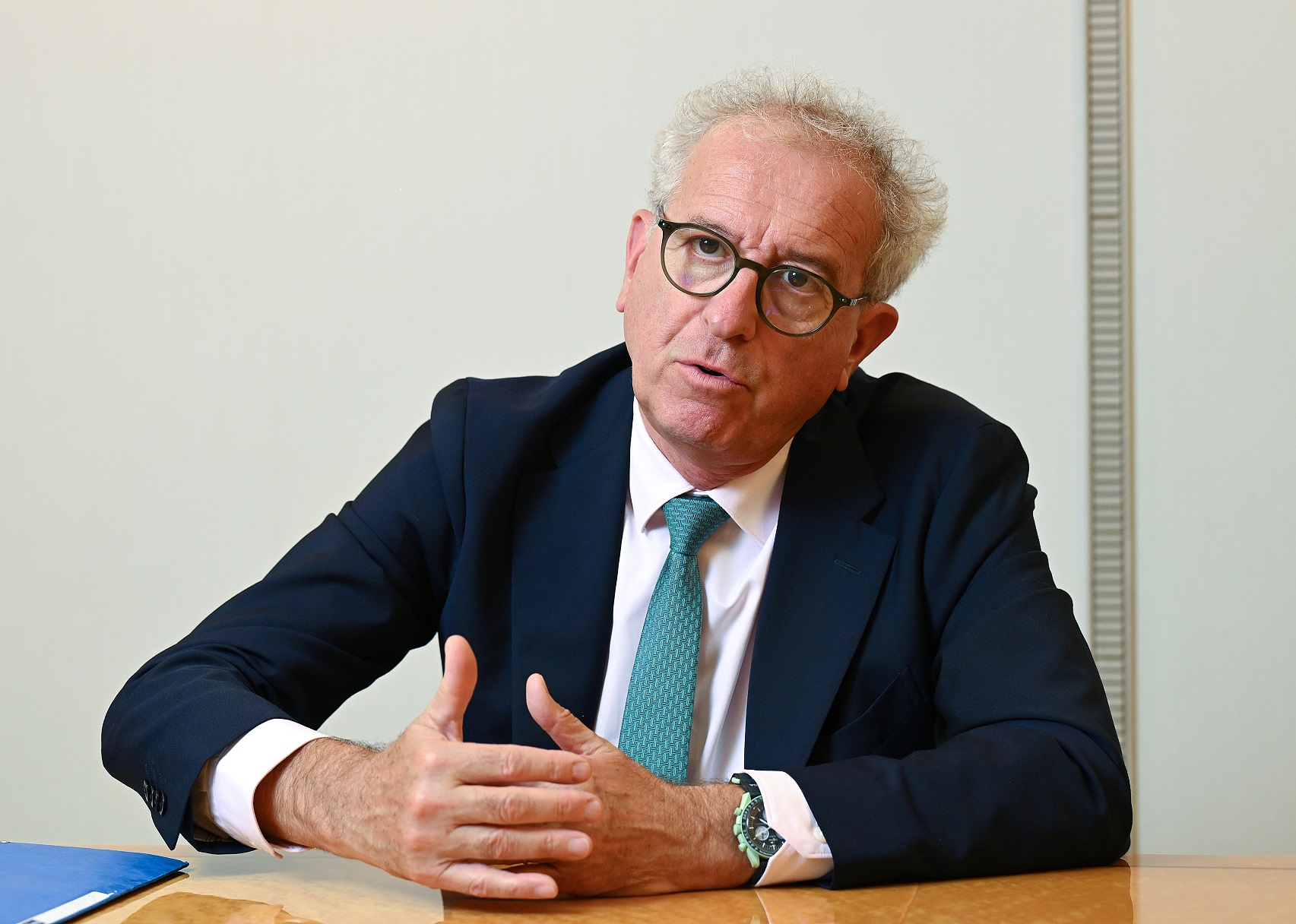Pierre Gramegna in interview with Nikkei (Japan)

Excerpts from interview with ESM Managing Director Pierre Gramegna
Nikkei (Japan)
Published on 19 October 2025
Conducted 25 September 2025
Interviewer: Yusuke Nakajima
On the positive impact of NATO's defense spending increase:
"Increasing defence spending is an opportunity, because the money that will be spent in defense will boost growth."
"Germany has committed to spend €500 billion extra investments in military expenditures, and €500 billion in logistics and transport and other investments. So, together, €1 trillion. This is a major change in the approach of Germany, which has been underinvesting. Increasing this defence spending will be beneficial, not only for Germany. It will also have a positive spillover effect on other economies."
On concerns about NATO defence spending increases:
"On the other hand, it strains fiscal budgets of European countries."
"Looking at the debt-to-GDP ratio of the euro area, the average is 89%. This is lower than many other countries in the world, including the United States and Japan. Our debt-to-GDP ratio is lower than in 2020, when we had the Covid pandemic."
"We have a fiscal framework, and we have a new Stability and Growth Pact, which gives us additional flexibility to adjust to such situations. Countries have the possibility to design a fiscal path, either in four years or up to seven years, depending on circumstances."
"So, I'm very confident that we can do both, increase defence spending as we have committed to, while keeping the budgetary discipline that is required."
On the rise of far-right parties in Europe and their financial impact:
"We have a fiscal framework, the Stability and Growth Pact. That's a European commitment. On the European continent we have the rule of law and comply with rules and international treaties. So, there are limits to how much more you can spend. I think that reassures markets”.
"Whoever is in government, I am relatively confident that no party would like to question the rule of law, and that the treaties that are signed are going to be respected."
On the decline of dollar hegemony and the growth of the euro:
"Regarding the euro replacing the dollar, I think this is out of reach, certainly for the time being, and maybe even in the long run.
"In April, when the US administration announced the list of tariffs for all the countries, we saw a fall in the US equity market and an increase in interest rates on US Treasury bonds. This is quite unusual. It showed that the market was worried that these tariffs and other decisions of the US administration could question the role of the dollar as the most important international currency."
"Today, the euro represents 20% of all reserve currencies. The GDP of Europe is less than that, so the use of the euro as a reserve currency is more than our economic weight. I think there is even more potential for the euro to be a reserve currency if we do the right things. And the right things are sticking to the Stability and Growth Pact, having fiscal discipline, keeping the budgets and debt-to-GDP under control, on a slow reduction path. If we do that, you have all the qualities that you need to have a trusted and attractive currency."
On the evaluation of Japanese government finances and Japanese government bonds:
“We have Japanese players who invest in our bonds, and we're very happy to see that. And we hold also Japanese government bonds."
"We all know that the debt-to-GDP ratio in Japan is extremely high. It is nearly three times the average of the euro area. So, it's very unusual. But there are two reasons why markets are not worried. One is that public debt is held mostly by Japanese investors and the Japanese central bank itself. So, the debt is held domestically. And the second is that you have a very high level of savings with private people. So, Japan can access the markets very easily."
Author

Contacts


